“When somebody buys my signature Duesenberg in a store, they're buying exactly what I play on stage”: Dave Baksh of Sum 41 interview
Dave Baksh lifts the lid on the gear used to record Sum 41’s last-ever album and details the benefits of a digital rig and recording remotely
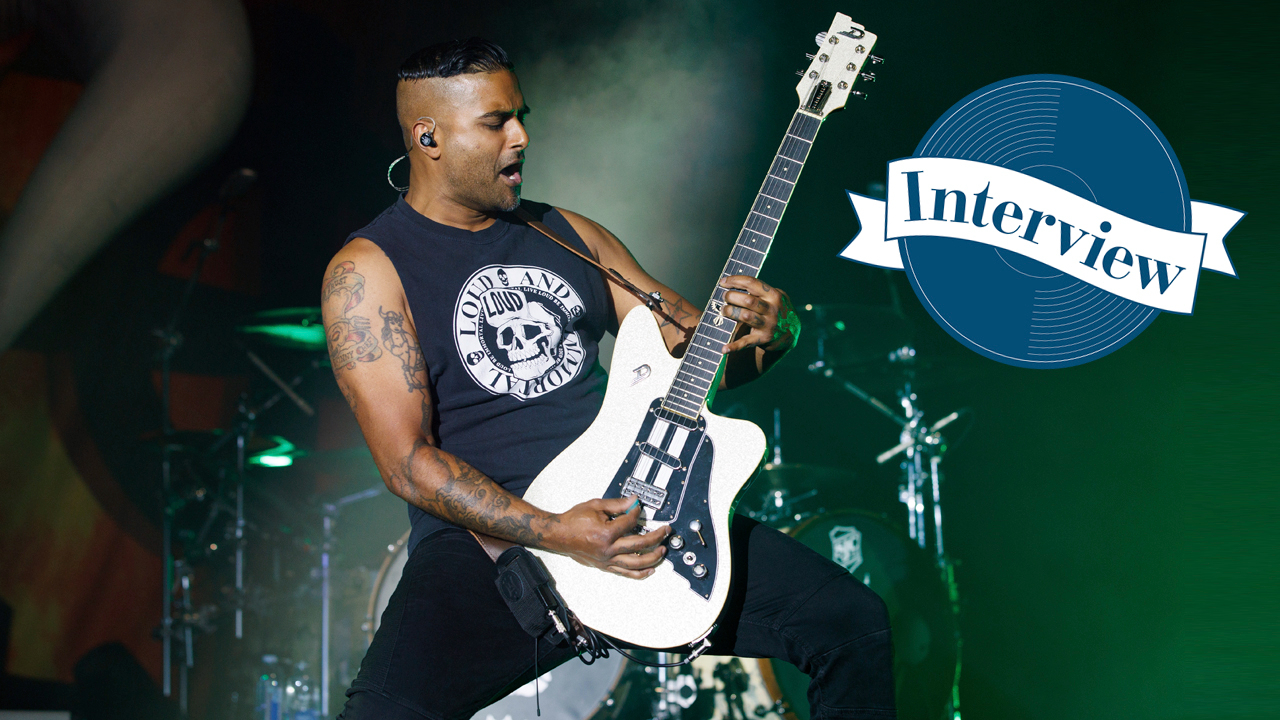
Today, Sum 41 is considered punk royalty, and rightfully so; they have penned some of the genre's biggest anthems of the last two decades. From mega-hits In Too Deep and Fat Lip to the thrashier Still Waiting, the Canadian quintet perfectly blends their love of upbeat, life-affirming pop-punk with their deep appreciation of all things ‘80s metal – something they’ve doubled down on for their latest release.
Heaven :x: Hell is the eighth studio album from the band and will serve as the last hurrah for Deryck Whibley and Co. – but while it may be their last release as a collective, they aren’t going out without a fight. This double album is broken up into two sides; Heaven features ten tracks of high-energy pop-punk, while Hell leans on the band’s heavier side, with gut-punching riffs and face-melting solos.
The new record reads like an ambitious attempt to showcase the duality of the band's sound and celebrate their career up to this point, but it wasn’t actually the plan. We sat down with Sum 41’s shredder-in-chief, Dave Baksh, via video call to discuss the new album, the electric guitars used to record it, and why he’s decided to ditch the amps and record remotely.
Speaking on the decision to make a double album Dave said, “It was strange how it all came about. The whole idea never got formally introduced to do a metal side and a more punk rock side, it just happened. Every single one of us, while we were talking to Deryck, was like, ‘We should actually just split the two up and release two records.' We had no idea at the time, too, that we made the record to end our careers on."
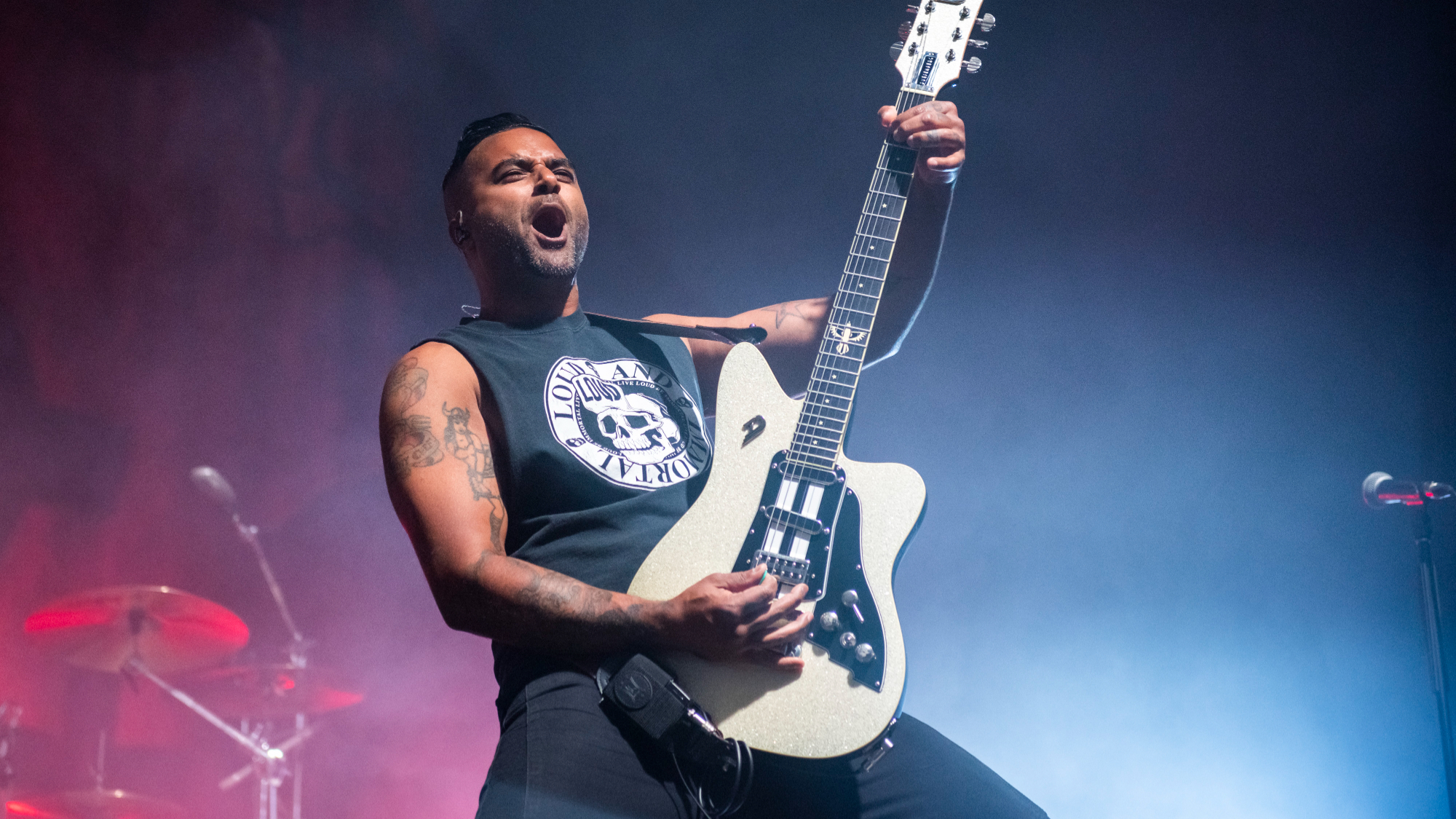
We added an ebony fretboard and a little bit of width to the body and of course, me being me, we took the sparkle that we got for the finish from an 80s Porsche
As you’d expect, Baksh’s signature high-gain, punk meets metal tone is omnipresent on the new record, but you may be surprised to learn what the Sum 41 axeman used to record those impressive tones.
Gleefully holding up his signature Duesenberg Alliance Series, Dave says, “Everything would have been done with this; it's a Duesenberg, made in Germany. They were kind enough to make an artist model out of what I had them custom-make for me. So I got a Paloma from them, [I had] ordered a custom guitar that had their Mini Toaster [pickup], two single coils in the middle and neck position, a regular five-blade toggle, a kill switch, and just a regular tone and volume."
Dave then goes on to detail what changes he made to the Paloma model that would eventually become his signature guitar. “So we went with a slimmer D profile for the neck – we stuck a little closer to the Paloma because the Paloma felt so good. We added an ebony fretboard and a little bit of width to the body and of course, me being me, we took the sparkle that we got for the finish from an '80s Porsche."
Want all the hottest music and gear news, reviews, deals, features and more, direct to your inbox? Sign up here.
For many, Baksh will be intrinsically linked to the PRS singlecut that takes a dunking in the video for In Too Deep, but Dave says that the decision to move away from his cherished Paul Reed Smith was a fairly natural process. “For one it was the offer to make an artist guitar that when somebody buys it in a store, they're buying exactly what I play on stage."
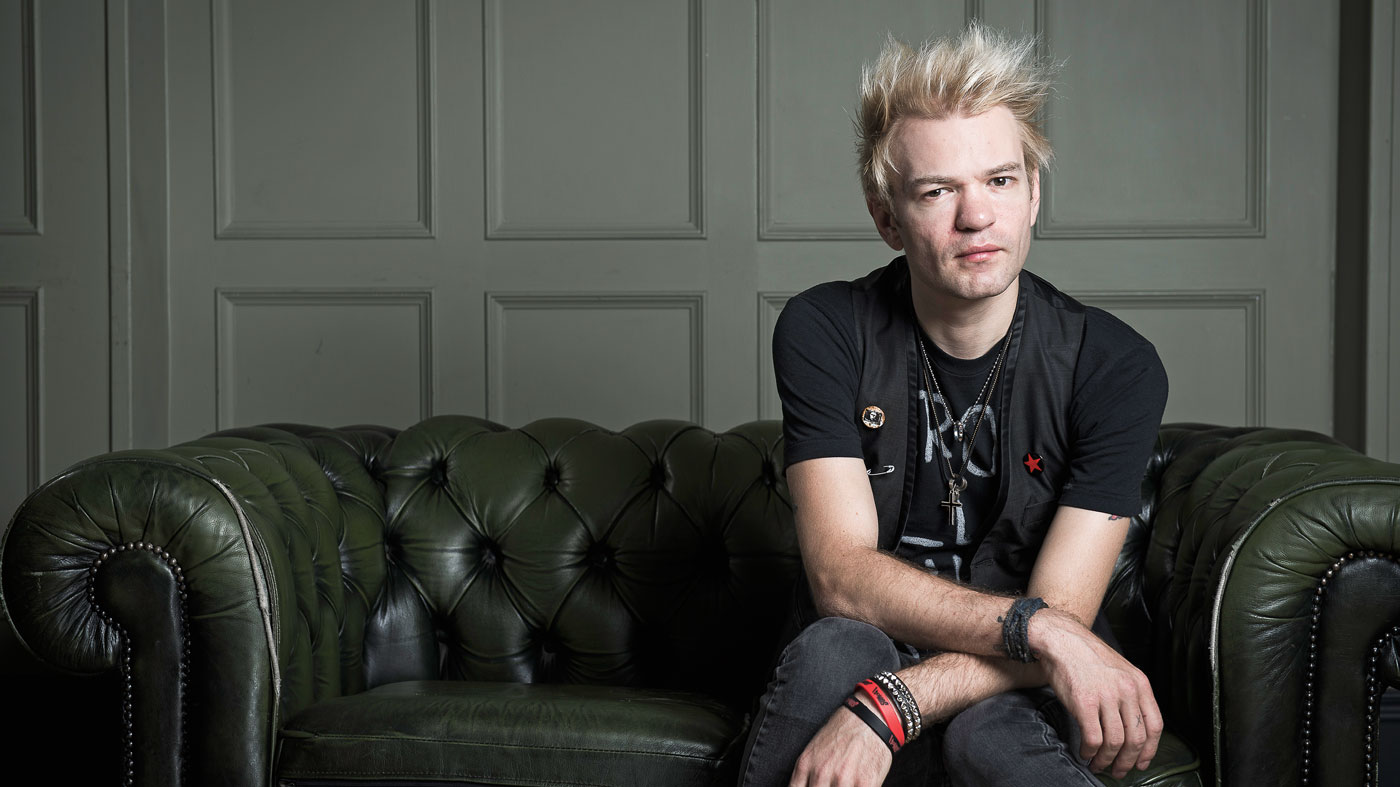
“I was a PRS guy and I've played with different companies as well. I went with all the big three, Fender, Gibson, and PRS, and for them, on a monetary basis, it doesn't make sense for them to make a crazy custom shop version for our fans to spend money on, right?
“With Duesenberg, I was so impressed by the construction and the aesthetic. I mean, the switch just naturally happened. It led to me being able to get this artist model. I couldn't ask more from a guitar company."
Now, Dave didn’t just rely on his trusty Duesenberg for the recording of the record. He also utilized the sound of a plain-top Gibson ‘58 Les Paul reissue that he affectionately calls Bob. “I would double it with this guy right here, it's a Gibson ‘58 reissue from the Custom Shop. I call this one Bob because, like the NOFX song, this was a 15-year decision for me where I was like, ‘Do I spend the money?’ Then, finally, Gibson filed for bankruptcy, so in a liquidation sale, I picked that bad boy up."
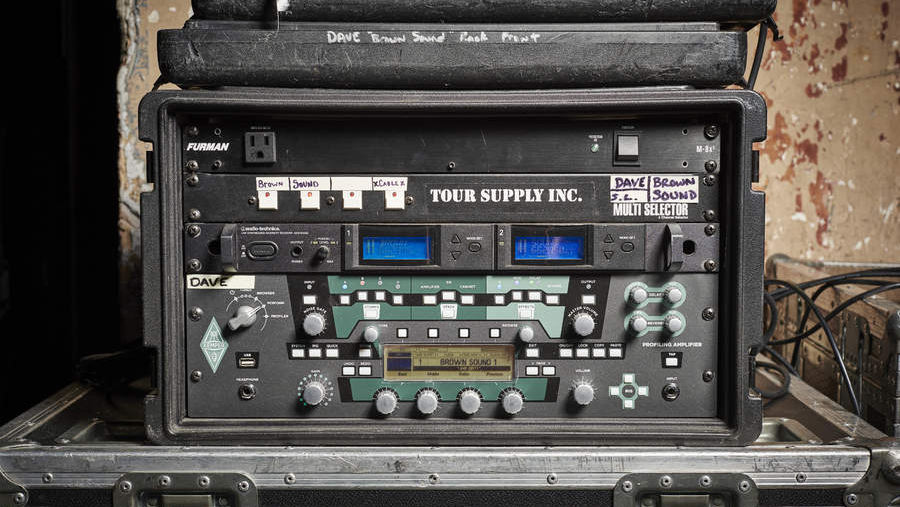
So we kind of have to record remotely to maximize what we can get out of the budget.
The minimal setup continues through to Baksh’s choice of amps and effects for the recording of Heaven :x: Hell. Dave explains that the band has ditched the amps in favour of digital amp modellers for touring and that his beloved Kemper Profiler is also a trusty studio companion – which helps take the pressure off while recording remotely.
“We're kind of scattered. Cone [Jason McCaslin] and I are the closest to each other, we live just outside Toronto. Deryck [Whibley] is in the States, Frank [Zummo] is in the States and so is Tom [Thacker]. So we kind of have to record remotely to maximize what we can get out of the budget. Frank can go with Deryck into a massive, great studio and get incredible drum sounds, which is, you know, the basis of a good record. And yeah, I think that recording remotely also takes a lot of pressure off of you.
“I would send Deryck files using a profile of his old [Marshall] Plexi. I believe it's a ‘72 or ‘73. It was modded out by John Suhr, so it's got these incredible mods done to it. It just punches in the right place. He'll take my DIs and reamp that through the proper amps for the sound.
“I would send an affected signal to a Jensen Twin Servo [preamp], which was just the little lunchbox version, and then I would use an unaffected DI from a Radial, just a regular green passive DI box.”
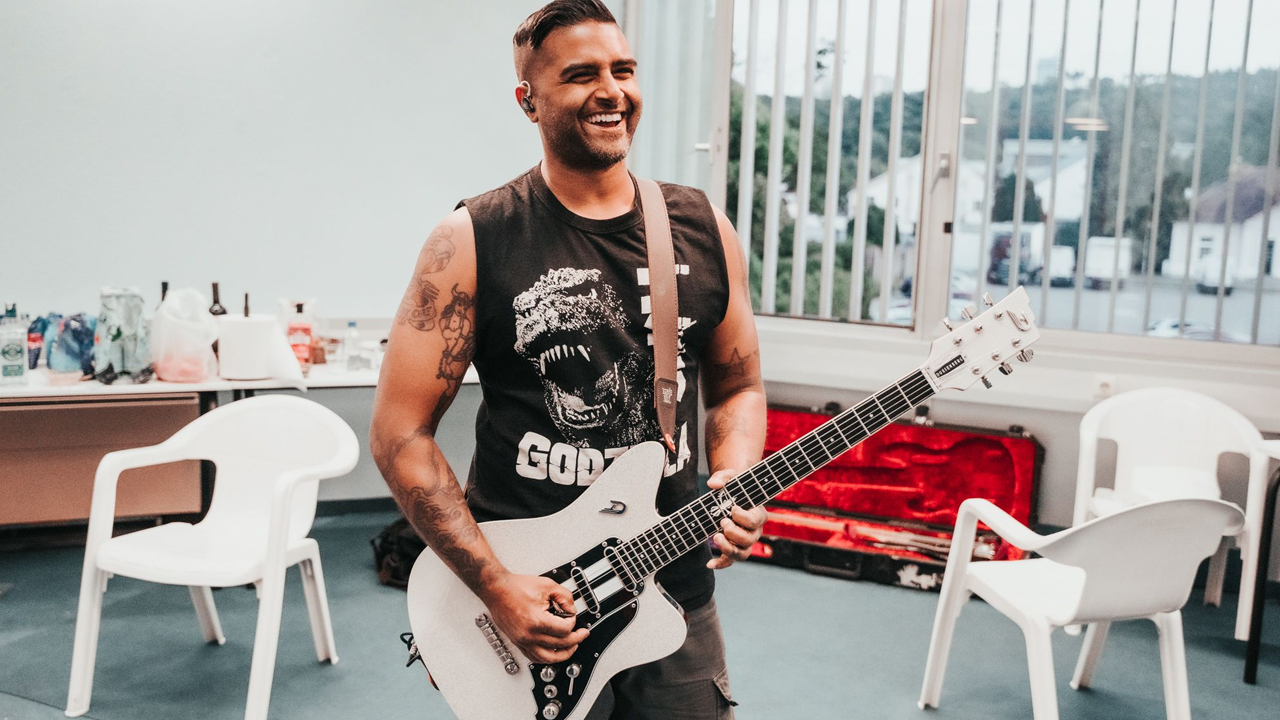
And I'll tell you right now, I have never been one of those people who bashes Kirk Hammett because I think that he is, to this day, still one of my favourite guitar players.
Rounding out the gear used in the studio, Dave explains that the effects were kept to a minimum, only opting to use his trusty wah and Digitech Whammy. “Yeah, for the most part, it was that, and then a custom wah pedal that Dunlop designed for me back in the early 2000s and the Digitech Whammy 4."
Fans of the band will know Baksh is not one to shy away from an ‘80s shred solo and often draws on his love of Metallica axeman Kirk Hammett as inspiration, a love shared by his fellow bandmate Deryck Whibley.
“So the way we did solos, I'll send [Deryck] a choice of eight to ten different [takes]. What I tend to like tends to be a little bit more of the Euro tech kind of stuff, but he loves that Kirk Hammett stuff. And I'll tell you right now, I have never been one of those people who bashes Kirk Hammett because I think that he is, to this day, still one of my favourite guitar players.
“And to be able to kind of harness his spirit to help out one of my best friends in the world's songs, it's amazing. But yeah, of the choices that Deryck had, he would always tend to build a more Kill ‘Em All [style solo]. That type of solo when you play it live, the energy I get, it's just unbelievable."
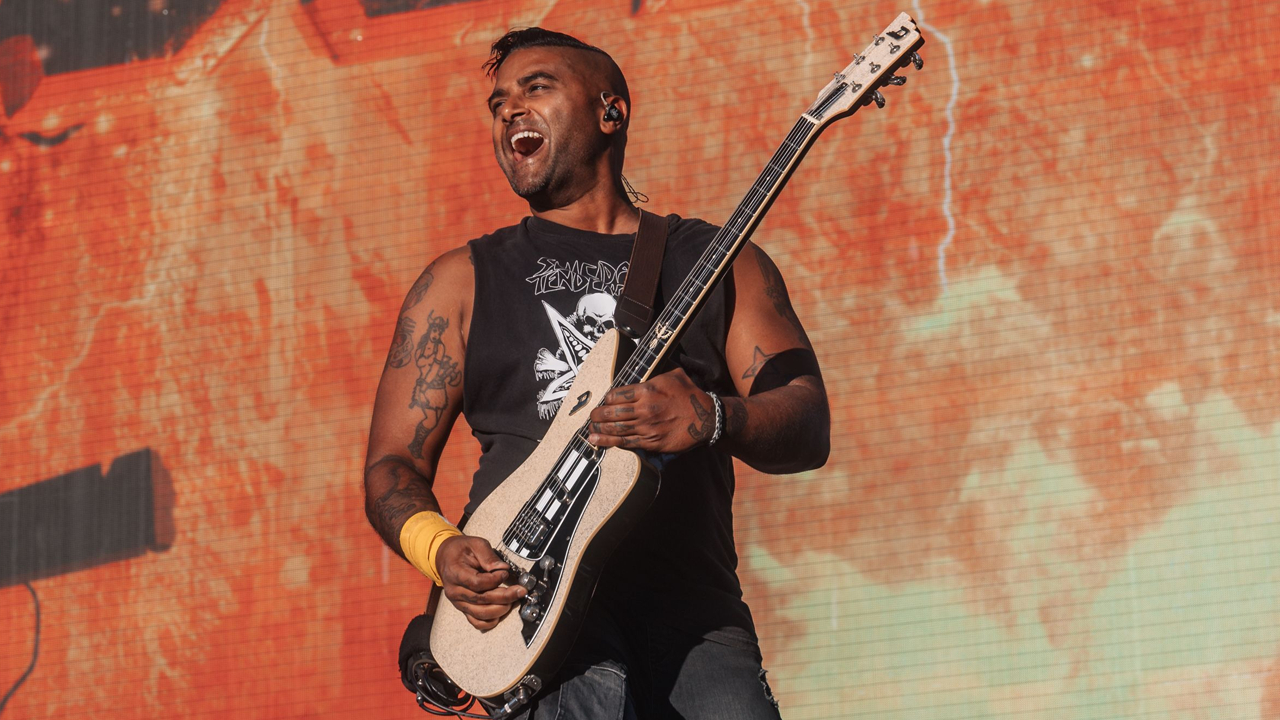
Hopefully, we can incorporate it live and hopefully, we don't just get ‘boomer’ yelled back at us.
Now, there is a rather surprising cover on the later half of the new record, and it may not be what fans of the band are expecting, but as Dave clarifies, his bandmate and frontman is a massive Rolling Stones fan, so maybe we should’ve seen their rendition of the classic Paint It Black coming?
“Ever since I've known Deryck, he's been a massive Rolling Stones fan. So, I mean, this has obviously been something that he's wanted to do for a long time. So, yeah, why not? The song's amazing, too. Hopefully, we can incorporate it live and hopefully, we don't just get ‘boomer’ yelled back at us [laughs]."
Speaking of the tour, Baksh isn’t giving too much away as to what fans can expect from the band’s last outing. “Well, I still don't know. We'll just throw ideas into a pile, and then the production team will pick ideas, which are ultimately also decided by Deryck and Cone. So we'll see which of the ideas got picked, if any.
"A lot of my ideas were based on just reflecting on the past and maybe taking a moment to really soak in what we've done because I think all of us are so in the moment and then into the next moment that we hardly take time to really look back."
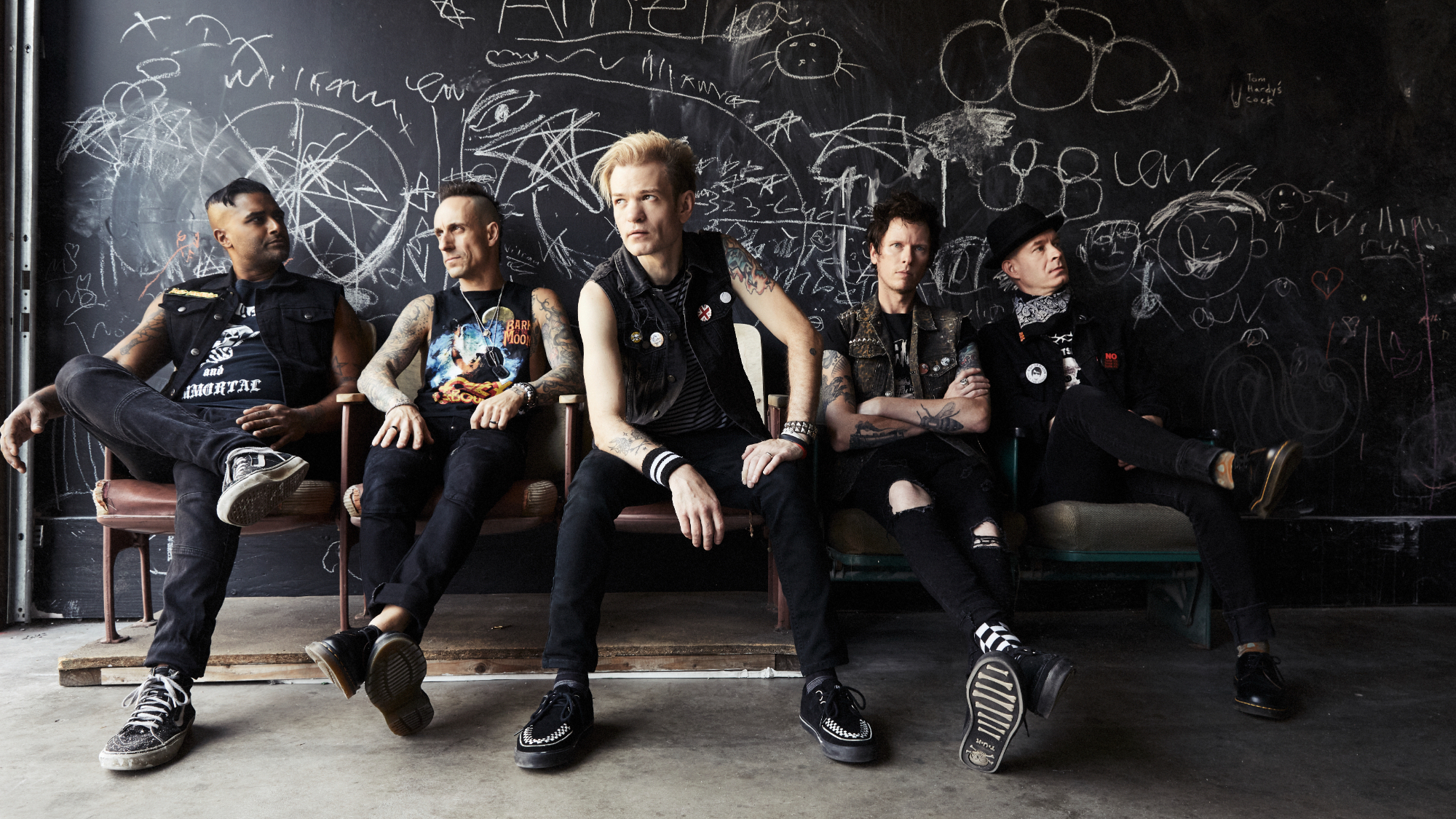
Reflecting on the band coming to a close, Dave feels the group has run its course and it’s time for Sum 41 to end, but they all feel they are going out on a high note.
“I think it's just time. I mean, everybody is having kids. We've been doing it for so long and when we see bands like The Offspring getting together and, you know, being friends and having fun, we realize how rare that is. A lot of other bands that have been around for as long as they have don't get along as well as they do.
"We kind of always had this pact that was spoken and later on unspoken, about the fact that we don't want to drag it out. We don't want to do things just to make money off of people. We want to have an impact and let that impact be lasting, and I think the best choice for that would be to end it when it feels right, and that's what we're doing.
“I got an email [from Deryck], and the title was ‘no better way to say this.' I was like, 'I think I might be getting fired from Sum 41.' I was reviewing in my mind the reasons why, and then I finally just read the email. Then I was like, 'Okay, I understand' and every single point made sense.
"Of course, I'd love to play music for the rest of my life, but whether or not that's in the arena of Sum 41, I mean, who knows? Maybe it won't be as fun without the chemistry of the other four dudes."
The new album Heaven :x: Hell is out on March 29th, and you can catch Sum 41 one last time at their various festival appearances throughout 2024. Head over to Sum41.com for more information.
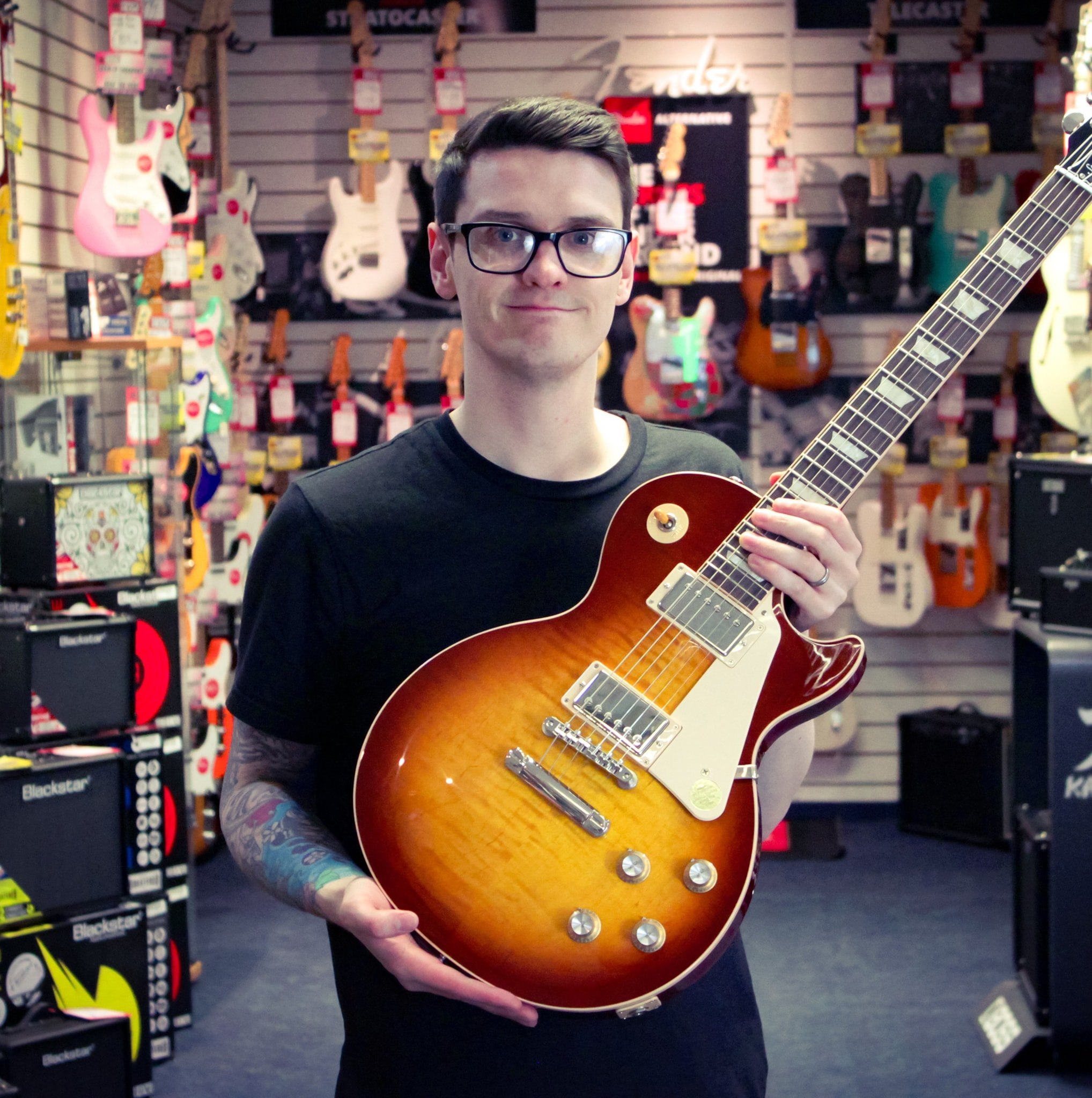
I'm a Senior Deals Writer at MusicRadar, and I'm responsible for writing and maintaining buyer's guides on the site. As part of my role, I also scour the internet for the best deals I can find on gear and get hands-on with the products for reviews. My gear reviews have been published in prominent publications, including Total Guitar, Guitarist, and Future Music, as well as Guitar World.com. I've also had the privilege of interviewing everyone from Slash to Yungblud, as well as members of Sum 41, Foo Fighters, The Offspring, and many more.
In a previous life, I worked in music retail, selling everything from digital pianos to electric guitars. I'm also a fully qualified sound engineer who holds a first-class Bachelor's degree in Creative Sound Production from the University of Abertay.